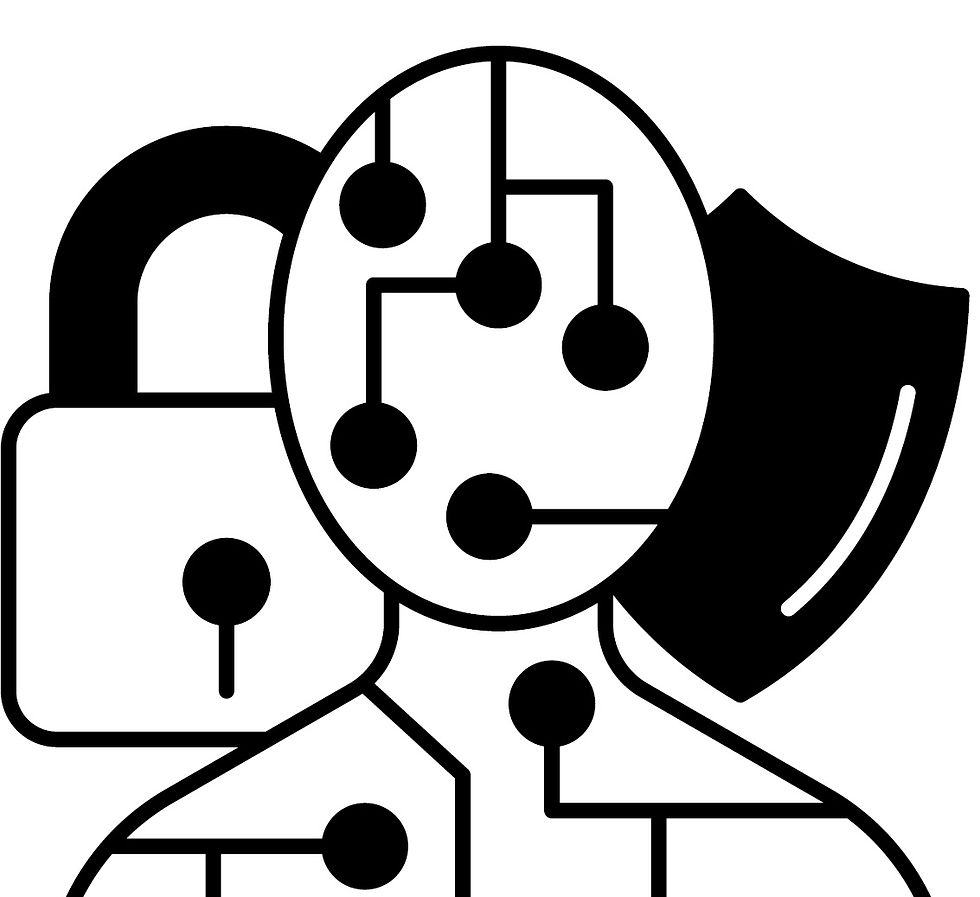Who am I? Looking Out.
- samstrain11
- Jun 11, 2025
- 5 min read

‘Know thyself,’ asserted the maxim at the Temple of Apollo in Delphi. Similarly Lao-tzu suggested that ‘If you understand others, you are smart. If you understand yourself, you are illuminated.’ Illumination is what the bible brings to understanding ourselves and our lives.
Our understanding of ourselves not only informs our lives but affect how we do life. For many of us life is compartmentalised: home, work, leisure, friends, acquaintances and rivals. For Christians it can be the sacred and the secular. The sacred may be important – go to church, meet with Christians, snatch that time of personal prayer, but probably falls into a minority sport with all the competitors its pitched against; school run, work run, park run. Nagging at the back of the mind is the voice ‘I’m not doing this sacred bit of my life very well – I need to do more – but I don’t have the hours.’
Our mental model of life is wrong. It’s all sacred. Sometimes the message on the page is so loud and obvious that its quiet and missed. ‘Be fruitful, fill, subdue, rule,’ are the commands to God’s representatives in Genesis. No compartmentalisation. If what is sacred is what God asks us to do, then it’s all sacred. There’s no ‘well Adam, I want you to do these specific tasks for me – and the rest of your time is your own.’ Rather, ‘all your time is My Time, and all your activities fall under the role I have given you, to be my royal appointed representative continuing my work of ordering the earth and the relationship I have bestowed on you to be my kinsman.’
It's a radical and life transforming idea. The purpose is to rule. To act as God’s co-regent bringing ambassadorial leadership wherever we go. It’s a role everyone has, a role men and women together have. Adam is given a helper. This is no subservient ‘little helper.’ It is the same idea as fellow soldiers helping each other in combat, or more startlingly in the same way that God acts as helper to people – particularly to those that most need it like the fatherless. Adam needs a god-like fellow warrior helper.
Whole life sacredness has very wide implications. It means my work is sacred. Not in some superficial Christian utilitarian way (‘perhaps I can use my work for Christian ends for evangelism’) but rather as a complete philosophy of work.
God writing through Jeremiah to the exiles in Babylon exhorts them to,
‘Build houses and settle down. Plant gardens and eat what they produce. Marry and have sons and daughters…seek the peace and prosperity of the city to which I have carried you into exile. Pray to the Lord for it because if it prospers, you too will prosper.’ Jeremiah 29.
In other words, see your work as a means of doing good. To prosper the people you live in and around. Bring them peace – shalom. To use the ideas from Genesis, to continue the good ordering of God’s creation. So do it well! This is your job and in doing it well you will bring honour to God.
And whatever you do, whether in word or deed, do it all in the name of the Lord Jesus Christ, giving thanks to God the Father through Him. Colossians 3.17
Work is to be seen as an embedded part of the Christian’s life – do it all in Christ’s name. That word ‘all’ is important. It means what it says.
More than that, work is as much a calling as any religious or ‘Christian’ work. So, Paul writes,
Nevertheless, each one should retain the place in life that the Lord assigned to him and to which God has called him. This is the rule I lay down in all the churches. 1 Corinthians 7.17
Paul deliberately uses terms we normally restrict to those ‘Christian Roles’ such as ‘assigned’ or ‘called’ to refer to normal life activities. It’s all sacred and your work is too.
Dorothy Sayers in typical punchy prose makes the point crystal clear,
‘The churches approach to an intelligent Carpenter is usually confined to exhorting him not to be drunk and disorderly in his leisure hours and to come to church on Sundays. What the church should be telling him is this, that the very first demand that his religion makes up on him is that he should make good tables.
Yet in her own buildings and her own ecclesiastical art and music, in her hymns and prayers, in her sermons, and her little books of devotion, the Church will tolerate or permit a pious intention to excuse so ugly, so pretentious, so tawdry and twaddling, so insincere and insipid, so bad as to shock and horrify any decent draughtsman.’
Do your work and do it excellently – it is for the good of the people you serve, the society you are part of, the world you live in, and in so doing it is in itself an act of worship to God.
It is striking that the first work Adam is given relates to the care of creation. It is as if God has written the book and put in the story line the main characters and their roles. It is now up to the characters to act out the roles the author has made. The first of these is to care for the creation the author has created.
The words used for this role are to serve, keep, guard and protect. There is no exploitation to be had here. Nor is the motive to be self centred protection and certainly not environmental veneration. Nature is not our mother, but it is our sister. The work is to look after it is important because it is God’s and He cares about it. Not just because He cares for us within creation, but he values creation in itself as his work,
‘Who cuts a channel for the torrents of rain, and a path for the thunderstorm, to water a land where no man lives a desert with no-one in it…’ Job 38.25,26.
So, we care for creation because we care for and worship the creator. We care for the creation because it is the first role given to us as God’s co-regents within creation. No false view of the future gets us off our responsibility. He is going to make ‘all things new.’ He isn’t going to make ‘all new things.’ The Christian hope is both for something that continues from what we have here, but something renewed, changed, transformed with heaven and earth married in some inexplicable glorious future. To fail to carry out our Edenic responsibilities is to fail God – and how we have!
Humans are exceptional. But their exceptionality is not tied up with their capacities, but with their God appointed roles, to be the angled mirror into and out of creation, reflecting God’s ordering into it and creation’s praise back to the creator of it all. The creature Homo sapiens is just another hominid – but the creature Homo divinus, the creature given His image, is exceptional.
Our exceptionality isn’t tied to intelligence or any number of other apparent human attributes. Artificial intelligence may well outstrip us. In many ways it does so already – beating us at chess and go, spotting disease anomalies faster than us and identifying new treatments quicker than us. But we are more than an intelligence. We are embodied. That God should embody Himself in ‘meat’ as John’s prologue says, says a lot about the value God places on human embodiment. We are relational. We relate to God as He does to us and to each other and to the creation we’re placed in. We are representational. We represent Him into His creation. Nothing else fulfils these roles, and what roles they are.


